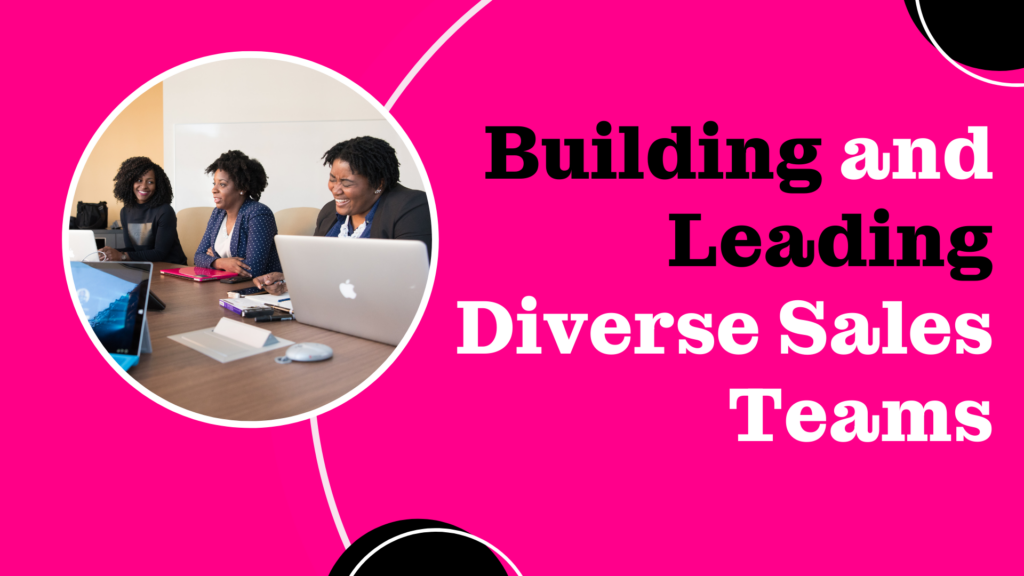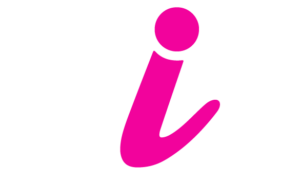From Top Seller to CEO: Lessons from Successful Entrepreneurs

Sales is more than a profession. It is a launchpad for leadership. For women of color navigating both the challenges of underrepresentation and the high demands of performance, sales builds resilience, sharpens strategy, and develops the kind of confidence required to lead at the top. Many of today’s most impactful entrepreneurs and CEOs, especially women of color, began their careers in sales. The same grit, empathy, and hustle that drive quota-crushers also power visionaries, founders, and executives who chart their own path to the top. Sales Is the Ultimate Leadership Training Sales builds the foundation for what it takes to lead. It teaches you to build trust, adapt quickly, and deliver results under pressure. These aren’t soft skills. They are the cornerstones of executive success. Here are some success stories from sistas who moved from sales to C-suite: Melissa Butler started her career on Wall Street before launching The Lip Bar, a vegan beauty brand born out of frustration with traditional beauty standards. Her time in finance taught her to pitch with conviction and reject no as a final answer. She used those same skills to grow her business from kitchen experiments to national retail shelves. Morgan DeBaun, founder and CEO of Blavity Inc., credits her early sales and media experience with shaping the way she built a platform that speaks directly to Black millennial audiences. The negotiation skills, market positioning, and audience-first thinking she developed in sales became the bedrock of her company’s growth. Janice Bryant Howroyd, founder and CEO of ActOne Group, started her path not in retail or tech, but building relationships one pitch at a time. She grew a minority-woman-owned staffing agency into a billion-dollar enterprise. Her early sales days taught her the importance of listening, problem-solving, and authentic connection, skills she credits for long-term, large-scale success. Lisa Price, founder of Carol’s Daughter, began selling handmade beauty products at local flea markets and out of her Brooklyn kitchen. Her ability to tell a compelling story, understand customer needs, and build community helped turn her side hustle into a multimillion-dollar brand. Her journey from grassroots selling to retail shelves nationwide shows the transformational power of sales done with heart and vision. These leaders prove that sales is not just a step on the path. It is a powerful foundation for creating something bigger, bolder, and deeply transformational. Mindset Shifts That Fuel the Move to Leadership Making the transition from high-performing sales professional to founder or executive requires more than tactical skill. It calls for a shift in mindset, especially for women of color often taught to prove value before owning it: From performer to visionary. You are no longer just hitting goals, you are setting them for others. From transactions to transformation. Leadership means thinking beyond numbers to impact, culture, and legacy. From proving your worth to owning your power. You do not need permission to lead, you need clarity, courage, and consistency. Owning your power also means mastering how you advocate for yourself. That includes presence, negotiation, visibility, and strategic self-advocacy. From Pitching to Founding: Lessons from the Journey If you are considering the journey from sales to CEO, remember that every stage, every deal closed, every challenge overcome, is a milestone preparing you for what comes next. Lean into what you’ve mastered. Every pitch, follow-up, and negotiation has prepared you to lead. Start before you feel ready. Action creates clarity. Build a circle that stretches you. Find mentors, advisors, and peers who champion your growth. Your reputation is shaped by how you show up every day, in conversations, in client interactions, in how you lead. Building visibility with intention can turn daily actions into long-term influence, especially when supported by a clear, personal brand. That’s why cultivating a strong presence and voice in sales is such a powerful step toward leadership. You Are Already Building the Blueprint Your experience in sales is not a stepping stone. It is a springboard. The mindset, skills, and results you’ve created prove that you are capable of much more than the next closed deal. Leadership is not waiting for you at the end of a perfect plan. It is built through every courageous conversation, every bold ask, and every moment you bet on yourself. Let’s Build What’s Next Together At Sistas in Sales, we support the sales-to-leadership pipeline. Whether you’re moving into management, launching a business, or becoming the face of your own brand, we offer the resources, network, and sisterhood to help you rise. Join the Sistas in Sales community to access mentorship, leadership development, and real conversations about what it takes to grow with purpose. And don’t miss the Sistas in Sales Summit 2025, the premier space where women of color in sales come together to expand their impact, celebrate their wins, and shape their futures on their own terms. Your story doesn’t end at top seller. It begins again, with you in the lead.
Embracing AI: Working Smarter, Not Harder in Sales

In sales, time and energy are your most valuable resources. For women of color navigating fast-paced targets, complex buyer needs, and the added pressure of underrepresentation, tools that free up both are more than helpful…they’re essential. Artificial intelligence is one of those tools. It’s not a replacement for your strategy or your voice, but a way to amplify your strengths. AI helps you stop chasing every task and start leading with clarity. When used intentionally, it streamlines your work, surfaces the right insights, and gives you back time to focus on what matters most: building trust, solving problems, and selling with purpose. Use AI to Simplify the Repetitive AI can take on repetitive, low-impact tasks so you can spend more of your time selling, strategizing, and building real relationships. Think tools that: Personalize email outreach using buyer insights: Platforms like Lavender.ai analyze past buyer behavior, industry context, and tone to help you craft outreach that resonates. Instead of rewriting every email from scratch, you can quickly create high-converting messages that still feel personal. Log CRM activity automatically and suggest next steps: Tools like HubSpot and Salesforce Einstein eliminate the need for manual note-taking and data entry. They track your meetings, emails, and touchpoints, then recommend follow-up actions based on deal stage or buyer engagement. Schedule meetings instantly without the back-and-forth: AI-enabled scheduling assistants sync with your calendar, propose ideal times, and manage confirmations so you’re not stuck in endless “What time works for you?” threads. Surface content recommendations based on each stage of the buyer journey: Sales enablement platforms powered by AI learn what assets drive conversions. Whether it’s a one-pager for a first call or a case study that seals the deal, you’ll have the right content at your fingertips without wasting time searching. By letting AI handle the repetitive, you unlock more time for what only you can do: sell with empathy, listen for real needs, and deliver solutions that move the conversation forward. These tools don’t eliminate your role. They help you operate more efficiently and spend less energy managing the admin side of sales. Make Decisions Based on Real-Time Insight Data tells a story. AI helps you read it quickly and act decisively, so you can spend less time guessing and more time closing with intention. Instead of relying solely on gut feelings or outdated reports, AI-powered tools give you immediate visibility into what’s working, what’s stalling, and where to pivot. This kind of clarity is how modern sellers stay ahead of shifting buyer behaviors. You can use AI to: Prioritize leads based on likelihood to convert: Tools like predictive lead scoring use past behavior, firmographics, and engagement trends to show you which prospects are most likely to take action. That means less wasted outreach and more time focused on qualified buyers. Forecast your pipeline more accurately: AI models analyze patterns in your deals like win rates, sales cycle lengths, and activity history to give you smarter, real-time forecasts. You’ll be better prepared for manager check-ins and end-of-quarter pushes. Customize your messaging based on engagement patterns: If one style of follow-up works better for a certain segment, AI will flag that. You can tailor your outreach based on what your buyers actually respond to, making each interaction more effective, more efficient, and more human. The more quickly you identify what’s driving results, the easier it becomes to refine your approach. When you lead with insight and intention, you not only work smarter, you lead more powerfully. For sellers balancing growth with authenticity, that clarity is everything. It’s especially helpful when you’re focused on building a brand that reflects your values, not just your numbers. Let AI Support Your Growth, Too AI isn’t just a tool for execution—it’s a coach. Many platforms now offer feedback on your call performance, email tone, pacing, and follow-up habits. Use it to sharpen your skills and boost your confidence. Try tools like: ChatGPT for practicing discovery questions or drafting outreach Gong or Chorus to analyze your conversations and highlight areas to improve Lavender.ai for instant feedback on email effectiveness These tools are especially valuable for sellers who are focused on showing up with more consistency and clarity without overextending themselves. They’re one more way to stay grounded while you scale your impact. If you’re working on growing without burning out, this kind of smart support matters. Let Technology Clear the Noise So You Can Lead Your greatest asset is still your ability to connect, to listen deeply, and to lead with empathy. AI supports that by clearing the clutter that slows you down. Think of it as your behind-the-scenes engine helping you prepare smarter, follow up faster, and deliver with more precision. The goal isn’t to sound robotic. It’s to automate the routine so you can elevate the human efforts. Start Simple: AI Tools to Explore You don’t need to be a tech expert to start. You just need to be curious and open to testing new tools that work for your workflow. ChatGPT: Draft personalized messages, handle objections, brainstorm pitch language. Lavender.ai: Score and optimize your emails before you hit send. Gong or Chorus: Get coaching insights from real sales calls. HubSpot or Salesforce Einstein: Automate your outreach and track buyer behavior in real time. Pick one and explore what it can do for you. Your sales strategy deserves the support. Technology and Community Go Further Together Adopting AI is just one part of building a modern, meaningful sales career. You also need community, mentorship, and spaces that see you fully. At Sistas in Sales, we bring it all together. Our network helps you stay at the forefront of technology, leadership, and well-being—without compromising who you are. Become a member today and build your sales career with power, purpose, and people who see you. Join us at the Sistas in Sales Summit 2025 for workshops on AI tools, branding, and leadership. It’s the premier space for women of color in sales to rise with clarity, confidence, and community. Let
Strategic Self-Advocacy: Empowering Your Sales Career

In sales, numbers speak, but so should you. For women of color in the industry, self-advocacy is not a luxury. It is a leadership skill. It is how you make your value visible, ensure your contributions are recognized, and claim the opportunities you have earned. Too often, we are told to let our work speak for itself. But in environments where visibility is uneven and biases exist, staying silent can mean staying overlooked. Self-advocacy is not about ego. It is about equity. It is the difference between waiting to be chosen and choosing yourself. Between hoping someone notices your impact and making sure they do. The good news? You can self-advocate in a way that feels strategic, authentic, and aligned with your values. Shift Your Mindset: Self-Advocacy Is a Skill, Not a Personality Trait You do not have to be the loudest person in the room to be effective at self-advocacy. You do have to be clear on your worth and intentional about how you communicate it. Start by reframing the idea that advocating for yourself is bragging. It is not. It is data. It is storytelling. It is leadership. Ask yourself: What impact have I had this quarter? What relationships have I built or strengthened? Where have I gone above expectations? Document these wins regularly. Your success deserves receipts, and receipts build confidence. Be Clear on Your Value Proposition Just like your product pitch, your career pitch should clearly articulate your unique value. What do you bring to the table that drives results? What problems do you solve? What is your unique strength? Build a “self-advocacy script” rooted in outcomes: “Last quarter, I exceeded my quota by 28 percent by expanding into a new client segment.” “I created a new onboarding deck that helped ramp up new reps two weeks faster.” “My ability to build trust with cross-functional teams helped move a stalled deal to close.” These are not just statements, they are proof points. They show how you lead, contribute, and grow impact. Speak Up in the Right Rooms It is not enough to be excellent. You need to be visible. Start looking at every meeting, one-on-one, and performance review as an opportunity to reinforce your impact. Share updates with clarity. Offer insights when appropriate. Ask for feedback and share your own goals. Promote yourself constructively. Do not wait until review season to talk about your wins. Build the habit of regularly sharing progress with your manager or team. Use emails, one-pagers, or quick check-ins to show alignment and impact. And do not be afraid to ask for what you want. That promotion, that raise, that leadership opportunity is not out of reach, but it may require you to claim it first. Build Internal Advocates, Not Just Mentors Mentorship is powerful. Sponsorship is game-changing. A mentor offers advice. A sponsor uses their influence to open doors for you. To advocate for yourself strategically, build relationships with people who understand your work and are in rooms you are not yet in. Keep them looped in on your progress. Ask for guidance and visibility. Offer support in return. Your network inside your company is part of your brand. Curate it with care. Use Your Voice to Lead, Not Just to Defend Self-advocacy is not just about protecting your performance. It is about leading from where you are. That means speaking up when you see gaps in strategy. Sharing ideas to improve systems. Advocating for other women of color. Asking tough questions when inclusion is missing. When you lead with confidence and clarity, you build credibility and you make space for others to rise too. Your Impact Deserves to Be Seen You have already done the work. You have put in the hours. You have delivered the results. Now it is time to make sure the right people know what you bring to the table. Self-advocacy is how you take control of your career path. It is how you turn quiet excellence into recognized leadership. And you do not have to do it alone. At Sistas in Sales, we create spaces for women of color to speak boldly about their value, build strategic influence, and grow their careers with power and purpose. Whether you are aiming for a promotion, managing up, or preparing to negotiate your worth, this community is here to sharpen your voice and support your rise. Join us at the Sistas in Sales Summit 2025 to deepen your leadership, expand your network, and master the art of strategic self-advocacy. You have earned your seat at the table. Now let’s make it count.
How Transferable Skills from Diverse Backgrounds Lead to Sales Success

Success in sales doesn’t come from following one set path, it comes from leveraging the full range of experiences that shape who you are. For women of color especially, entering or growing within the sales world often means bringing a rich, diverse background—one that includes leadership in other industries, entrepreneurial grit, community-building skills, advocacy, creativity, and resilience forged in spaces where we had to lead without formal titles. And here’s the truth: those experiences aren’t detours. They’re your competitive edge. Today’s buyers don’t just want polished pitches—they want authenticity, perspective, and people who understand real needs in a complex world. Your lived experiences are the differentiator that can open doors, close deals, and build trust faster than any textbook technique. Why Diverse Career Paths Create Stronger Sellers Sales isn’t just about product knowledge or polished scripts. It’s about relationships, trust, problem-solving, and adaptability. If you’re coming into sales from a different field, whether it’s education, healthcare, retail, marketing, nonprofit leadership, or the arts, you’re already bringing skills many traditional reps have to work hard to develop: Relationship-Building Teachers know how to read the room. Healthcare workers know how to navigate urgency and trust. Community organizers know how to align stakeholders. Every one of these skills maps directly to high-impact selling. Problem-Solving Under Pressure If you’ve managed projects, mediated teams, handled crises, or built strategies from scratch, you already know how to stay calm, solution-oriented, and focused when challenges arise. Storytelling and Influence Artists, marketers, writers, and activists understand the power of a story well told. In modern sales, being able to frame a solution within a compelling narrative is everything. Resilience and Emotional Intelligence If you’ve ever had to advocate for yourself or others in difficult spaces, you have resilience baked into your DNA, and emotional intelligence that buyers today crave in a sales partnership How Diverse Experience Builds Strategic Advantage Your previous roles did more than fill your résumé. They sharpened the exact skills that top sellers rely on every day. When you’ve worked across different industries or functions, you’re not just carrying knowledge. You’re carrying strategy, nuance, and the ability to see patterns others might miss. Diverse experience doesn’t just make you relatable. It makes you resourceful. Here’s what that looks like in sales: You anticipate needs sooner Coming from fast-paced or high-empathy roles like healthcare, education, or nonprofit leadership means you’ve had to make decisions with limited information. That intuition helps you identify buyer pain points early and ask smarter discovery questions. You solve creatively, not just quickly If your background includes problem-solving in complex systems like navigating red tape in public institutions or building community initiatives on limited budgets, you bring innovation that isn’t bound by how it’s always been done. You connect more authentically Sales isn’t just about what you pitch. It’s about how you listen. Diverse professional journeys teach you to meet people where they are. That’s what builds trust and long-term partnerships. You adapt faster under pressure If you’ve ever pivoted careers, managed competing responsibilities, or operated without a roadmap, then resilience and adaptability are already part of your toolkit. That gives you an edge when deals stall, markets shift, or strategies change. Your past roles weren’t detours. They were development. The range you’ve built across industries, teams, and challenges is what makes you not just a seller but a standout. How to Position Your Past as a Power Move If you’re coming from another industry (or a non-traditional path), own it boldly. Here’s how: Tell the story in outcomes. When you talk about your background, focus on transferable wins. “In my previous role, I led X initiative, which increased retention by 20%.” or “I managed a caseload of 150 clients while maintaining a 98% satisfaction rate.” Connect skills to sales outcomes. Draw the line clearly: “My experience in education honed my ability to build trust quickly and communicate complex ideas clearly. These are skills I now use daily in enterprise sales conversations.” Frame it as an advantage, not an apology. Your diverse journey gives you range, grit, and insight that can’t be manufactured. Make sure buyers and hiring managers see it as a value add, not a gap. Your Journey is Your Advantage There is no single “perfect” path into sales. Success isn’t about fitting a mold; it’s about bringing more voices, experiences, and perspectives to the table, especially in a world as complex as the one we’re selling into. You are not starting behind. You are starting with strengths others are still working to build. Your resilience, adaptability, and lived experience don’t just make you qualified…they make you an asset. They allow you to see opportunities others miss, build trust more deeply, and solve problems in ways that feel real and human. Your path has prepared you for this moment. It’s not something to overcome. It’s the reason you’re ready. Your resilience, your range, your lived expertise make you not just a good rep but a transformational one. Ready to Take It Further? At Sistas in Sales, we believe your story is your superpower. Whether you’re pivoting into sales for the first time, scaling to leadership, or bringing decades of cross-industry experience into a new role, you deserve to be in spaces where your background is seen as a strength—not a question mark. Join the Sistas in Sales community to access mentorship, leadership development, skills training, and a network of women who know the power of bringing every part of their journey to the table. And don’t miss the upcoming SIS Summit. It’s the premier gathering where women of color in sales come together to build skills, celebrate wins, and expand their careers on their own terms. Expect bold conversations, actionable workshops, leadership pathways, and a community that sees your full potential. Own your path. Own your power. Build your legacy. See you at Summit 2025.
Sustainable Success: How to Build a Sales Career That Evolves With You

Sales is often framed as a sprint. Hit the numbers. Push through the pressure. Grind hard, rest later. But here’s the truth: That model burns people out, especially women of color who are navigating both professional and cultural pressures in high-performance environments. Your sales career deserves more than a burnout cycle. It deserves strategy, sustainability, and space to evolve as you do. This is not just a job. This is a career. And a sustainable career means doing work that energizes you, builds your skills over time, and aligns with the life you’re creating—not just the goals you’re chasing. Be Productive, Not Overextended Productivity isn’t about packing your calendar or always being available. It’s about staying focused on what actually moves the needle and letting go of the noise. You don’t need to earn your value through exhaustion. The constant hustle, the back-to-back calls, the late-night follow-ups? Those are signs of misalignment, not ambition. You are allowed to pause, recalibrate, and redefine what a productive day looks like for you. Start here: Time-block your most focused hours for strategic work, not just calls or meetings Schedule your priorities, not just your tasks Let AI or automation help you streamline follow-ups and reporting Protect time for thinking, planning, and rest—because clarity requires space Productivity should support your well-being, not compete with it. When you manage your energy with intention, you do more of what matters and less of what drains you. Think Long-Term: Redefining Sales Success You didn’t come this far to burn out halfway through. Sales is intense, but it can also be a long, rewarding journey if you build it on your terms. Sustainable success means designing a career that grows with you, not one that demands you shrink to fit it. That might mean stepping into leadership, shifting into a new industry, taking a sabbatical, or pivoting into a role that aligns better with your values. Sustainability looks like: Taking real time off and honoring it without guilt Having honest conversations about your bandwidth Seeking sponsors who advocate for your growth and protect your potential Allowing your goals to evolve as your life evolves Your ambition does not expire when your priorities shift. It sharpens. It becomes more intentional. You are allowed to change your mind. You are allowed to grow. You are allowed to define success in ways that reflect who you are now—not just who you were when you started. Your Career Should Honor Your Life, Not Override It Sales should not come at the cost of your peace, your health, or your identity. The job is important, but so is your joy. So is your family. So is your rest. A career worth having is one that creates room for your wholeness—not just your performance. You are not here to prove yourself endlessly. You are here to build something that lasts. That might mean logging off when you said you would. Saying no to work that doesn’t align with your values. Making time for the things that recharge you. Or redefining your goals to reflect what success actually feels like, not just what it looks like from the outside. This is not a sprint. It’s a rhythm. One that adjusts to you, not the other way around. Ready to Grow With Us? You’re building a career that reflects your vision, not just your role. And that takes community, clarity, and care. At Sistas in Sales, we believe you should not have to choose between performance and peace. We offer the space, resources, and sisterhood to help you grow your sales career in a way that is strategic, sustainable, and aligned with who you are. Join us at the Sistas in Sales Summit 2025. This is where goals meet grounding. Where growth feels personal and collective. Where women of color in sales come together to connect, learn, and lead with power and purpose. Build a career that honors all of you. We’ll meet you there.
Thriving in Sales Without Burning Out: A Guide for Women of Color to Protect Their Peace and Perform With Purpose

Success in sales often comes with pressure. Pressure to hit goals, outperform expectations, and show up with energy and confidence day after day. But for women of color in sales, that pressure is layered. We navigate high expectations while being underrepresented, manage the emotional weight of being “the only,” and balance caregiving, community, and career, all while staying “on.” Let’s be real. That kind of pressure can be exhausting. And in a world that celebrates hustle culture, it can be hard to admit when we’re running on fumes. But here’s the shift: You don’t have to sacrifice your well-being to succeed in sales. You can perform at a high level without burning out. You can protect your energy while growing your impact. This isn’t about finding perfect balance. It’s about building your version of a sustainable, aligned sales career. What Balance Really Looks Like (and What It Doesn’t) The traditional idea of work-life balance implies clean lines: work on one side, life on the other. But for most of us—especially women of color—life isn’t split down the middle. It overlaps. It blends. It moves in seasons. Some weeks, you’re in back-to-back demos and negotiating deals at a high pace. Other weeks, family, health, or mental recovery take center stage. Balance isn’t about rigid routines. It’s about flexibility and self-awareness. Real balance means giving yourself permission to shift, adjust, and reset when you need to. It means designing your days in a way that supports both your goals and your peace. Managing Stress in a High-Pressure Sales Role Stress is part of the job, but it shouldn’t run the show. In high-performance environments, stress can feel like a constant companion. And if you’re a woman of color, that stress is often compounded by microaggressions, bias, or pressure to prove yourself twice over. Burnout doesn’t happen all at once. It builds slowly. And the first step to avoiding it is recognizing what’s draining you. Start here: Name your stressors. Are you overcommitted? Is performance anxiety creeping in? Are you holding emotional labor that no one sees? Create boundaries that stick. Use calendar blocks for focused work. Turn off notifications after hours. Communicate your availability clearly and confidently. Build recovery into your routine. Take walks between calls. Use music or breathwork to reset. Log off early once a week when you can. Rest isn’t earned. It’s essential. Check in with yourself. Ask: How am I feeling today? What do I need more or less of? That awareness keeps you from hitting empty without realizing it. You are your most valuable asset. Protecting your energy isn’t optional. It’s leadership. Create Boundaries That Actually Work In a remote or hybrid sales environment, your home and your job can start to feel like the same space. One more Slack message. One more CRM update. One more late-night follow-up. Suddenly, there’s no clear “off” switch. Reclaim your time and space by setting boundaries that support your focus and protect your peace: Designate a workspace. Even if it’s just a corner of the table, make it clear where work begins and ends. Start and end your day with intention. Use simple rituals like writing down wins, lighting a candle, or closing your laptop mindfully to signal transition. Repurpose your old commute. Use that time for stretching, journaling, or movement instead of jumping straight into tasks. Stick to your hours. Let your team know when you’re offline. Model the boundaries you want respected. Boundaries aren’t about doing less. They’re about doing what matters more intentionally. Let Community Carry You You don’t have to figure it all out alone. In sales, especially in environments where you’re underrepresented, it’s easy to feel isolated. But thriving isn’t just about strategy. It’s about support. Being part of a community that understands your experience doesn’t just feel good. It’s a career advantage. When you can share honestly, ask questions, learn from others, and be affirmed, your confidence grows. And so does your performance. At Sistas in Sales, we believe success should be sustainable and collective. We talk about quotas, yes. But we also talk about boundaries. Burnout. Mindset. Power. Wellness. Rest. We celebrate wins, and we hold space for the tough days, too. Ready to Lead With Impact and Intention? You’re building something big, and you deserve to do it without sacrificing your peace to prove your worth. There is no perfect formula, only the practices and support systems that help you feel whole, focused, and in control. So ask yourself: What’s one shift I can make this week to protect my energy, reclaim my time, or reset my routine? Start there. And if you’re ready to build your career alongside a community that sees you fully, join us at Sistas in Sales. From wellness resources and leadership development to mentorship and sisterhood, we’re here to help you lead with clarity and succeed without burnout. Plus, don’t miss the 2025 Sistas in Sales Summit. This is the premier gathering for women of color in sales to connect, recharge, and rise. Expect bold conversations, real talk about balance and boundaries, and the kind of community that doesn’t just cheer you on but walks with you. Join the SIS community today, and we’ll see you at the Summit.
Building Resilience in Sales: Strategies to Thrive Amid Rejection and Market Changes

Sales isn’t for the faint of heart—and we don’t say that to scare anyone. We say it because it’s true. Targets are rising. Markets are shifting. Buyers are cautious. And rejection? It’s part of the job. But for women of color in sales, there’s another layer: navigating professional pressure while also managing the silent weight of being underestimated, overlooked, or “the only” in the room. That’s why resilience isn’t just a mindset—it’s a muscle. One that can be trained, sharpened, and strengthened over time. Whether you’re facing another “no,” dealing with a slow quarter, or adapting to a shifting industry, these strategies are designed to help you not just bounce back—but rise, evolve, and thrive. Reframe Rejection as Redirection Let’s start with the hardest truth: rejection is inevitable. But here’s the reframe—it’s also information. It’s data. It’s direction. Instead of internalizing a lost deal as a failure, start asking different questions. What did I learn? What patterns do I notice? What part of the conversation could I fine-tune next time? You’re not just hearing “no.” You’re gathering insight. And the faster you reframe, the faster you grow. Try this: Keep a “resilience tracker” where you log rejections and write down one takeaway for each. Over time, you’ll see growth—not just grit. Adaptability Is Your Advantage Watch for the signs—your adaptability is often triggered by what no longer works the way it used to. That doesn’t mean you’re off your game—it means the game has changed. The most resilient sales pros know how to spot the signals early and shift before the impact hits their numbers. Your usual scripts aren’t converting. The talk tracks that used to land with ease now feel flat. Prospects are less responsive. You’re not getting callbacks, or your close rate is slipping. That’s a sign your language, timing, or offer might need to evolve with your buyer’s mindset. What’s changed in their world? What external pressures (economic, competitive, tech-related) might be influencing their hesitations? Buyer objections have shifted. Where buyers used to say, “We don’t have budget,” they’re now saying, “We’re pausing all new vendor conversations.” Or, “We need a clear ROI in 30 days.” Objections reveal priorities. If those priorities are changing, your pitch—and your prep—needs to change too. Start collecting and analyzing objections in real time. What are buyers really worried about right now? Build new language that speaks directly to those pain points. Your product is being positioned differently. Maybe your company is leaning into a new use case. Maybe your product roadmap shifted. Maybe your marketing team is highlighting different benefits. If the messaging around your product is evolving, your sales strategy has to evolve too. Stay close to product and marketing teams. Ask for the “why” behind the shift, and adapt your conversations to reflect the new narrative. Once you’ve spotted the shift, don’t freeze—adapt. Too many sellers try to force outdated messaging because it worked once. But resilience isn’t about holding on—it’s about letting go of what no longer works and being willing to try something new. Run small experiments. Test a new email subject line. Lead with a different insight. Open with a bolder question on your next call. These small shifts help you stay agile without waiting for permission or a playbook update. Pivot early. Test often. Trust your instincts. You’ve got experience, insight, and data on your side. Use them to stay one step ahead—not just of the market, but of the version of you who’s still playing by yesterday’s rules. But even the sharpest strategy needs support. Resilience is built faster—and held stronger—when you’re surrounded by people who truly understand the journey. Ground Yourself in Community You weren’t meant to do this alone. When the pressure’s on, community isn’t just support—it’s strategy. It’s the space where you can exhale, reflect, and be reminded that your challenges are valid—and solvable. That’s why being part of a network like Sistas in Sales matters. It’s not just about access—it’s about affirmation. It’s where you can process a hard week, role-play a new talk track, or hear from someone who’s been there and bounced back better. Want to keep growing in a space that gets it? SIS membership offers events, mentorship, resources, and real-time connection to a community that’s invested in your success. Commit to Continuous Learning Resilience isn’t just about getting through the tough moments—it’s about sharpening your edge so you’re ready for what’s next. It’s the ability to stay curious when things get uncertain, to keep evolving even when results feel stalled, and to invest in yourself consistently—not just when it’s convenient. Make learning part of your process—not as a side project, but as a built-in part of your growth strategy. You don’t need hours or expensive certifications. You need consistency and intention. Listen to a podcast during your commute or while making dinner. Sign up for a micro-course on AI to learn how emerging tech can support your pipeline. Read 10 pages of a sales book before bed to shift your mindset before tomorrow’s call block. Learning builds confidence. Confidence builds momentum. And momentum builds results. Here’s a starting lineup to fuel your development: Podcast: Women in Sales by Barb Giamanco – Real, unfiltered conversations about navigating leadership, strategy, and bias in sales as a woman. Book: Emotional Agility by Susan David – A guide to managing your inner world with clarity and resilience, especially when under pressure. Tool: ChatGPT – Use it to draft emails, practice objection handling, role-play discovery calls, or get quick summaries on unfamiliar industries. The more you invest in sharpening your skills and mindset, the more prepared you’ll be to thrive through uncertainty—not just survive it. Daily Practices That Strengthen Your Resilience Muscle Resilience isn’t only built in the big moments—it’s cultivated in the quiet, intentional choices you make every day. The more consistent your habits, the more stable your mindset. And in sales, that inner stability becomes your superpower. Here’s how to build it: Check in with yourself daily: Before
Mastering Modern Sales: Leveraging AI and Building a Personal Brand

How Women of Color in Sales Can Use Technology and Authenticity to Lead the Future Let’s be real: the way people buy has changed. We’re in a remote-first, digital-forward world where buyers do their research long before they ever speak to a rep. Attention spans are shorter. Expectations are higher. And trust? It’s harder to earn. Enter automation, AI-powered CRMs, predictive insights, and data-driven strategies. These tools aren’t just for techies—they’re for any sales professional who wants to close smarter, connect faster, and stay in tune with today’s buyers. If you’re a mid-to-senior-level saleswoman, embracing these changes isn’t optional—it’s essential. The good news? You don’t need to be an AI expert. You just need to be intentional, curious, and open to learning what can elevate your workflow. AI and personal branding are no longer “nice-to-haves”—they’re your edge. Together, they help you sell with more precision and more power. And for women of color in sales, they offer a real opportunity to lead the future by showing up smarter, louder, and more authentically than ever before. Leveraging AI in Sales Without Losing Your Voice The fear is real—“Will AI replace me?” The truth? It won’t replace you. But it will elevate the sales pros who know how to use it wisely. AI doesn’t need to take over your process to be powerful. When integrated intentionally, it becomes a behind-the-scenes partner—helping you move faster, make smarter decisions, and spend more time doing what actually drives results: building human connections. Here’s how AI can support your sales process while keeping your voice and values front and center: Predictive analytics can alert you when a lead is likely to convert—so you’re always one step ahead. No more chasing cold leads while your hot prospects go cold. Automated lead scoring and email personalization help you focus your energy where it counts. AI sorts through the noise so you can act with confidence and speed. ChatGPT and similar tools are game-changers for writing follow-ups, prepping for discovery calls, handling objections, or even brainstorming your next LinkedIn post. They give you a strong starting point—you add the heart. CRM integrations with AI can log call notes, track engagement, and keep your pipeline organized without manual input—giving you more time to strategize, not scramble. But remember: tech is the tool—you are the strategy. AI can’t replicate your lived experience, your cultural fluency, or your ability to read the room. It can’t replace the energy you bring to a deal, the trust you build in a conversation, or the gut instinct you’ve honed over years in the field. What it can do is clear the clutter—so you can lead with clarity and impact. Start Here: Beginner-Friendly Tools to Explore ChatGPT: Draft outreach emails, prep for sales calls, brainstorm messaging, and handle objection scenarios Lavender.ai : Get instant feedback on your email tone, clarity, and effectiveness HubSpot or Salesforce Einstein: Prioritize leads, forecast pipeline performance, and track buyer behavior with real-time insights Notion AI or Grammarly: Streamline internal communications, clean up proposals, and polish follow-ups These tools can help streamline your workflow—but what truly sets you apart in modern sales is how you show up. Technology may support the process, but your personal brand drives the connection. Building a Personal Brand That Sells In today’s sales landscape, your expertise isn’t the only thing buyers are paying attention to—they’re also paying attention to you. Your voice, your values, and how you show up in the world directly impact your credibility and influence. That’s why personal branding isn’t just a nice-to-have—it’s your edge. It’s how you move from being a name on a sales call to a trusted thought partner. And for women of color in sales, it’s also a way to claim space in an industry where your voice has long been underestimated or overlooked. So what does building a personal brand really mean—and how do you do it without feeling like you’re “performing” online? Define Your Voice Start with clarity: What do you want to be known for? Is it your negotiation skills? Your ability to turn cold leads into long-term clients? Your passion for helping Black women thrive in tech? Identify the intersections of your values, experience, and ambition—and let those guide your content and conversations. Action Step: Jot down 3 themes or values you want your name to be associated with. That’s the foundation of your brand. Own Your Wins Loudly and Boldly This is not the time to be humble. Share your success stories—big and small. Celebrate closed deals, promotions, hard lessons, and milestones. Give people a window into the journey behind your results. When you share your wins with honesty and pride, you don’t just build credibility—you build relatability and trust. Action Step: Start your next LinkedIn post with: “Here’s what no one tells you about closing a six-figure deal…” Show Up Where It Counts Visibility builds credibility. You don’t need to be everywhere—you just need to be intentional. Whether it’s sharing insights on LinkedIn, mentoring a rising saleswoman, or speaking at events, consistent visibility signals leadership. Action Steps: Comment thoughtfully on industry posts Share a weekly win or insight from your role Say yes to the panel, the podcast, or the coffee chat Every touchpoint shapes your brand. Make Content from Real Life Think you have nothing to say? You do. Your day-to-day experiences—overcoming objections, navigating team dynamics, pitching under pressure—are content gold. You don’t need polished scripts. You need perspective. Speak from where you are, not just where you want to be. Reminder: Your lived experience is not a side note—it’s the story. Action Step: Pick one moment from your week that made you pause—something you learned, overcame, or noticed in a client conversation. Turn that into a quick LinkedIn post or voice memo. The realness is what makes it resonate. Keep It Sustainable Don’t burn yourself out trying to brand yourself perfectly. Start small. Post once a week. Set aside 30 minutes on Fridays to reflect on what you learned and share
Cross-Functional Collaboration: Bridging Sales, Marketing, and Product Development

Cross-functional collaboration isn’t a buzzword—it’s a business imperative. In today’s competitive landscape, the companies leading their industries aren’t just selling better; they’re aligning better. Sales, marketing, and product development must operate as a unified front, not disconnected departments with competing priorities. For professional women of color in sales, understanding and driving this alignment is more than a value-add—it’s a leadership move. When these three functions work in sync, the impact is measurable: shorter sales cycles, more relevant campaigns, and solutions that meet real customer needs. But true collaboration requires more than calendar invites or shared docs—it demands a shift in how teams communicate, strategize, and center the customer. Start with Shared Goals Sales is focused on conversion and revenue, marketing on brand visibility and demand generation, and product on innovation and usability. These priorities may differ in scope, but they’re united in purpose: delivering value to the customer. That alignment only happens when teams co-create goals around the full customer journey, not just individual KPIs. Quarterly planning sessions, mutual accountability metrics, and shared definitions of success are essential in creating alignment that lasts. Speak Each Team’s Language The most effective sales professionals know how to communicate beyond the pitch. That means understanding how marketers think about funnel strategy or how product teams prioritize sprints. Translating sales data into actionable insights—like patterns in lost deals, product feedback from clients, or objections heard in demos—builds credibility and drives influence. When you can bridge that language gap, you stop being a voice from another department and start becoming a trusted strategic partner. Champion the Voice of the Customer No one has a clearer pulse on the customer than sales. You hear the concerns, the aspirations, the blockers—and you hear them in real time. That insight is a competitive advantage, and when it’s shared across teams, it can inform smarter product decisions and more compelling marketing. But it’s not just about relaying what customers say. It’s about representing perspectives that are often overlooked. Women of color in sales bring different lived experiences, informing an emotional intelligence and observations that can illuminate nuances others might miss. That perspective matters—not just in who we serve, but in how we build. Make Collaboration a Habit, Not a Handoff Collaboration isn’t a project milestone—it’s a rhythm. Building consistent, repeatable opportunities for collaboration turns alignment into a cultural standard. That could look like recurring cross-functional standups, shared dashboards for tracking customer trends, or co-led campaigns. But structure alone won’t sustain collaboration—relationships will. Invest in trust. Understand your counterparts’ pressures. Lead with partnership, not requests. Lead with Inclusion Inclusion is not an add-on to collaboration; it’s the foundation. When diverse perspectives are part of the planning, strategy, and decision-making process, the outcomes are richer, more relevant, and more sustainable. As women of color in sales, our leadership in cross-functional work is not only about driving results—it’s about reimagining what leadership looks like. By showing up with clarity, empathy, and strategic insight, we set new standards for collaboration and collective success. The future of sales isn’t siloed. It’s interconnected, intentional, and inclusive. And it will be shaped by those bold enough to lead beyond their lane. At Sistas in Sales, we’re building a community of women who are not only closing deals but driving cross-functional strategy, amplifying the voice of the customer, and showing up as powerful connectors across departments. If this sounds like you—or who you’re ready to become—membership gives you the tools, network, and access to take your impact to the next level. And there’s no better place to step into that power than the Sistas in Sales Summit this September. Join hundreds of high-performing women of color in sales, marketing, and product for three days of leadership development, industry insights, and the kind of real-talk collaboration that drives transformation. If you’re ready to lead across teams, shape the future of work, and do it all in community—you belong here. Become a SIS member. Join us at Summit. Build what’s next, together.
Building and Leading Diverse Sales Teams

The current political climate has brought a wave of disappointing announcements from business leaders. Under the pressure or approval of shifting political winds, many companies are rolling back their diversity, equity, and inclusion (DEI) initiatives. These rollbacks reveal a disheartening truth: some organizations never truly believed in the value of diversity, only adopting DEI programs when they were politically expedient. Now, with public statements villainizing intentional efforts to build diverse workforces, they falsely claim that prioritizing diversity equates to discrimination or hiring less-qualified individuals. Let’s be clear: the data tells a different story. Diverse teams consistently outperform their less-diverse counterparts. They create better products, foster more innovation, and drive greater revenue and profit margins. Moreover, it has never been true that prioritizing diversity means sacrificing qualifications. It simply means seeking out the best talent, including candidates who may have been overlooked due to unconscious bias, and ensuring opportunities are distributed equitably. For sales leaders, diversity is not just a moral imperative—it’s a strategic advantage. Let’s explore how to build and lead diverse sales teams that drive better results and create a more equitable workplace. The Benefits of a Diverse Sales Team Enhanced Problem-Solving and Innovation A team composed of individuals with different backgrounds, experiences, and perspectives brings a wealth of ideas to the table. Diverse teams are better equipped to approach problems creatively and develop innovative solutions, giving them a competitive edge. Improved Customer Understanding A diverse sales team mirrors the diversity of today’s global market. Team members who share cultural or lived experiences with clients are better positioned to build trust, understand pain points, and offer tailored solutions. Increased Employee Engagement and Retention Inclusive workplaces foster a sense of belonging. Employees are more likely to stay with companies where they feel seen, valued, and supported. Better Business Outcomes Studies show that companies with diverse teams perform better financially. According to McKinsey, companies in the top quartile for racial and ethnic diversity are 35% more likely to have financial returns above their industry medians. Building a Diverse Sales Team Reevaluate Hiring Practices Expand your talent pool: Partner with organizations like Sistas in Sales, recruit from historically Black colleges and universities (HBCUs), and attend diversity-focused job fairs. Create inclusive job descriptions: Use language that attracts a wide array of candidates and avoids unintentional bias. Diversify your interview panels: Include team members from varied backgrounds to ensure fair assessments. Set Measurable Diversity Goals Establish clear benchmarks for diversity and track progress over time. These goals should be realistic, actionable, and aligned with broader business objectives. Invest in Talent Pipelines Develop internships, mentorship programs, and scholarships targeting underrepresented groups to nurture talent from an early stage. Mitigate Unconscious Bias Implement training to help hiring managers recognize and counteract biases. Using structured interviews and blind resume reviews can also reduce bias in the hiring process. Creating an Inclusive Culture Foster Belonging Create employee resource groups (ERGs) or affinity groups where team members can connect and share experiences. Openly celebrate diversity through events, milestones, and cultural holidays. Prioritize Equity Regularly audit compensation, promotions, and opportunities to ensure fairness across all demographics. Provide flexible work arrangements that accommodate diverse needs and responsibilities. Encourage Open Dialogue Facilitate conversations about diversity, inclusion, and equity. Leaders should model vulnerability and actively listen to team members. Provide Continuous Learning Opportunities Host ongoing DEI training and workshops to reinforce the importance of inclusion. Encourage team members to share insights and best practices. Dismantling Bias to Build Better Teams Prioritizing diversity in hiring isn’t about lowering standards—it’s about raising them. It’s about recognizing and addressing unconscious biases that may prevent us from seeing the best candidates. By focusing on diversity, you’re building a team capable of creating products and services that resonate with broader audiences, thanks to the richness of their collective experiences. The benefits are clear: diverse sales teams perform better, foster innovation, and enhance customer relationships. As leaders, it’s our responsibility to build equitable workplaces that reflect the world we serve. Together, we can create teams that not only achieve outstanding results but also pave the way for a more inclusive future.

